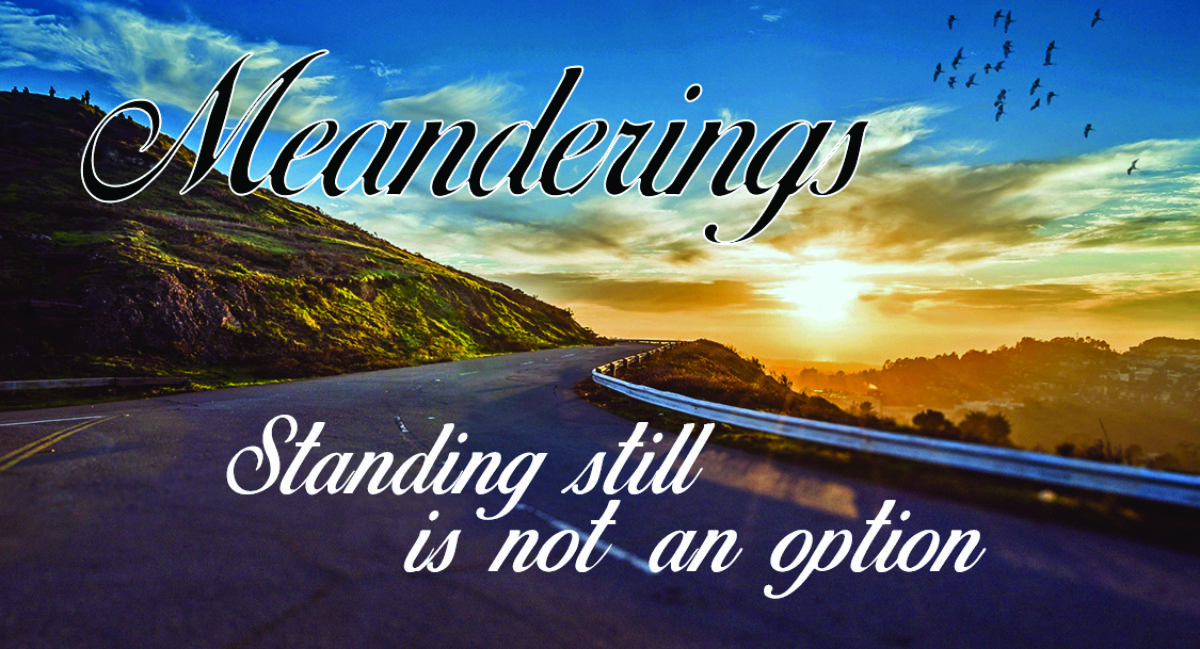“Hi love, how are you?” I entered into the home with my happy face on.
“Good.”
My Bert looked up at me but he was not smiling, he was not giving me a salute, his new greeting. He seemed a bit morose.
“Is everything okay? Are you feeling well?”
“I am fine.” Hmm, he is not his usual cheerful self. Maybe he is hungry. It is soon lunchtime. I wheel him into his room and set up the cart ready to be shown the choices for the day. In the meantime I put on his music, but he did not sing along as he usually does..
Soon our cheerful dancing PSW comes in to display the choices for lunch. First displayed was the tuna fish sandwich with garden salad. My Bert looked at it and said: “No.”
She moved in time with the music as usual then showed him the hot lunch. It was hamburger with macaroni somewhat akin to hamburger helper, mixed cooked vegetables, mashed potatoes with gravy. The dessert was not displayed but he loves sweets and I know he would get two desserts. He looked at the plate and said “No.”
“Sweetheart, you will have to choose something to eat. Look again.”
My Bert looks at the plates and with a shrug chooses the hot lunch.
The tray is brought in with his chosen lunch, milk, cranberry juice, water, fruit salad and a piece of pie and the soup of the day which today is vegetable. My Bert loves soup so all should be well.
“No.” That came as I offered the soup. No problem I will start with the entrée. “No.” That’s okay I think as I select the mashed potatoes. “No.”
“What do you want to eat first?” My Bert points to the fruit salad. Eating dessert first is no sweat at all. My Bert eats it all up then points to the entrée. He eats a half and says, “No.” I offer the mashed potatoes, and he eats most of it.
My Bert now points at each item in turn and eats until there is not much left of anything. He eats all the vegetables. It is smooth sailing or rather, eating. I think the soup will be a breeze.
He looks at the soup as I raise a spoon to his lips and he says “No.” I begin to cajole, entice, and stir it to show him how much vegetables are in it. I talk about how he makes very good soup and how we both love soup. At each juncture he says “No.”
“Hey, I bet if you taste it you will like it. Have some soup and then you will have some pie.”
“N… O… NO!” He shouted. I was speechless. The force with which my Bert said this as he looked at me, the resolute, unyielding, indomitable will evident in every fibre of his body made it impossible to misconstrue the fact that he was not going to eat his soup. Not today and perhaps not ever!
I slowly put the spoon on the tray. I covered the soup. I knew without a shadow of a doubt that soup was not going to go anywhere near my Bert today. While I did this my mind was a turbulence of thoughts.
What depth did my Bert have to plumb to retrieve that sequence? It was appropriate, to the point, communicated exactly what he wanted to say in a concise and forceful manner. But not something I thought he was capable of doing.
From where did that so logical utterance come? Was he recalling the old memory of us together telling our sons: “Capital N, capital O means capital NO.?” This was usually the response when they ganged up one or the other or both together asking for something trivial. When this answer came they knew that was the final answer.
Did My Bert have a sudden but compelling need to exhibit some control over his circumstances? There is so little over which he has any control now. Was my Bert who was decisive; who was in control of his own business; who had strong opinions and made choices unafraid; was that man now reduced to refusing a meal just to prove he was still a man? The thought saddened me.
Was I being fanciful and reading too much into the incident? Maybe he just did not want soup today. I smiled inside. This was the take charge brook no nonsense Bert I knew.
I cut into the blueberry pie. He accepted it, chewed and said: “Good.”
The Meander: I believe we underestimate the abilities of our loved ones. We are so caught up in the caring we sometimes forget the characteristics and those inherent elements of their nature that makes them the persons we know and love.
Alzheimer disease may take away their faculties but it cannot take away their character, their essence, their personhood.


